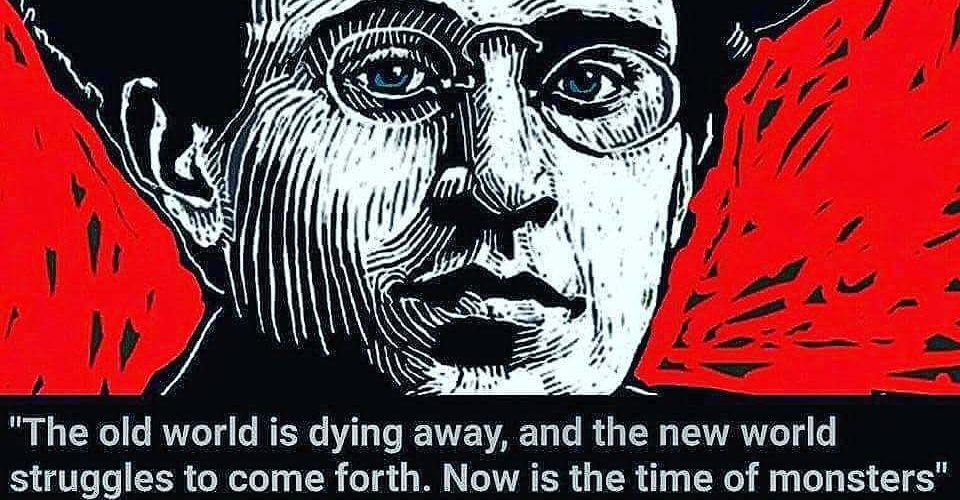Whatever way one looks at it, the reality is that this crisis, and its four forms—environmental, health, economic, and political—will prove to be worse than 2008. The fact that China’s economy has slowed down, for the first time in decades, only shows that this crisis will be a global affair, rather than a Western financial crisis, as happened in 2008. The 2020 crash will be a crisis of capitalism, of the system as a whole.
The Great Recession of 2008 was not, of course, confined to the Western financial markets, and countries in the Global South were also hit by the financial crash, and suffered, thanks to a reduction in exports to the West; but they still saw growth. China, for example, spent billions on infrastructure, using its built-up cash reserves. The Chinese currency, the renminbi, wasn’t an international trading currency, like the dollar or euro. The Chinese managed to keep their growth rate going during the same time that the euro zone was coming apart.
What makes this crisis different, though, is that it’s more global, rather than being a crisis in the Western economies primarily. Modern imperialism has relied on production in countries such as Bangladesh, India, and China. The profits from this production overwhelmingly go back to the imperialist core, a process of super-exploitation of the workers in the Global South.
This has meant that the economy in the United States is 80 per cent focused on the services industry. This industry is reliant on the import of cheap commodities—such as coffee and T-shirts—from the Global South, essentially the super-exploited workers in these countries subsidising the higher wages of the exploited workers in the imperialist core, where labour costs are higher.
The services industry was already in trouble before the covid-19 pandemic. Small businesses in the United States and elsewhere were already in terminal decline, and the total level of debt in the West was increasing, in effect leading to the further concentration of capital, proving the wisdom of the saying that “one capitalist kills many.”
The fact that China’s economy has faced its first slow-down in decades does not bode well for the already struggling industries that are dependent on production in the Global South, such as airlines, retail, and transport. The effect on global supply chains cannot be over-estimated.
The United States, in particular, solved the problems that arose in the 1929 crash in the short term through a redistribution of wealth to keep workers from becoming too radical in their demands and in the long term through a military Keynesianism, with a sharp increase in military production. This, along with the Marshall Plan, made the United States the dominant imperialist power after the Second World War.
It is still the dominant imperialist power, though showing signs of decline. Its military expenditure continues to exceed that of all other countries, it continues to engage in proxy wars, and it maintains military bases around the world, especially directed against China. It goes without saying that the purpose of military production is not to store weapons, ammunition, tanks and fighter jets in warehouses to gather dust: the object is to use them.
After the 2008 crash imperialism intervened, or attempted to intervene, in Libya, Syria, Ukraine, and Venezuela, to name only a few. Notwithstanding the destruction of Libya and the attempted destruction of Syria through the use of jihadi proxies, and fascists in Ukraine, imperialism has not been able to keep a lid on things as it once was. The mass protests against the Iraqi war in 2003 may not have prevented the assault on that country but they arguably prevented the further use of military invasion again, forcing imperialism to rely on proxy groups.
The next targets for war will more than likely be Iran or Venezuela. Already sanctions have crippled their efforts at responding to covid-19, much as Iraq’s health system was crippled with sanctions before the invasion. The efforts of all democratic forces should be towards supporting these countries’ right to independence and sovereignty, free from imperialist intervention.
Closer to home, the prospect of a new form of fascism gaining ground cannot be dismissed, in any country. This only makes it even more pressing for the left to take ownership of the claim to patriotic policies and not allow the far right to hijack these sentiments.
A realignment of global forces is likely, with China in particular growing in influence, especially in Asia and Africa. But the slowdown in China’s growth serves to show not only the limits of its capitalist experiment but also its vulnerability, and its inability to exercise major hegemonic power on a global scale to match the United States. China is not the Soviet Union mark 2.
In reality, what will result from this crisis is not the replacing of one power with another but a multi-polar world. There can be no doubt that this will be opposed by the most reactionary and pro-imperialist forces.






